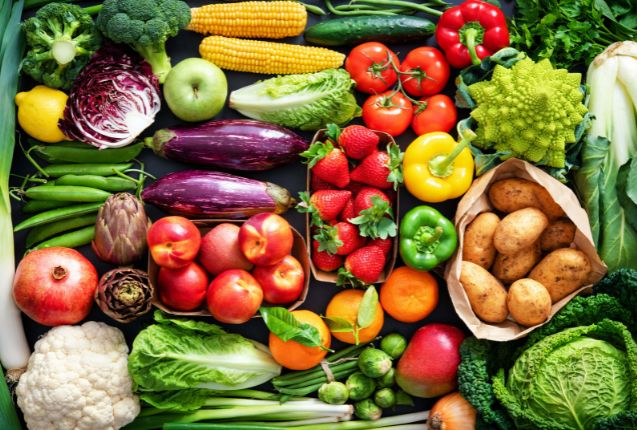The chance to Add One More Vegetable to your daily diet and reap the long-term health benefits is now more affordable thanks to a significant drop in the price of fresh fruit and vegetables.
Food price statistics just released by Stats NZ show fruit and vegetables fell 9.3% in the 12 months to February 2024.
“Prices for fresh produce such as tomatoes, broccoli and lettuce drove the decrease in fruit and vegetable prices,” explains Stats NZ’s Consumer Prices Manager Will Bell. Tomatoes are now 57% less than they were this time last year, while broccoli is 40.4% cheaper and lettuce is 37.4% less compared to 12 months ago.
Since the beginning of this year, fruit and vegetable prices have fallen 4.6% with apples, kūmara and tomatoes recording noticeable drops compared to January 2024, providing better value for consumers.
Research carried out by NielsenIQ for 5+ A Day last December showed half of all Kiwi consumers (50%) spend between $11-$30 on fresh fruit and vegetables each week. Older New Zealanders (55+ years) typically spend the least, while those aged 40-54 years and have higher household incomes generally spend the most.
Falling prices are welcome news for both consumers and the 5+ A Day Charitable Trust who last month partnered with Vegetables.co.nz to launch an exciting new initiative encouraging Kiwi whānau to Add One More Vegetable to their daily routine.
5+ A Day Trustee and Principal Scientist and Team Leader at Plant and Food Research, Dr Carolyn Lister, says one extra serving of vegetables each day can make a significant difference to your overall health.
“Not only does it provide you with vital nutrients, such as vitamin C and dietary fibre, but also greater diversity. Each vegetable provides a unique combination of nutrients and phytochemicals that are important for health. This diversity is needed to keep everything in your body working, for example your eyes, skin, muscles, joints and bones,” she says.
“A diverse diet really is important for healthy eating and reducing the risk of diseases, including heart disease, asthma, osteoporosis and diabetes. Studies have reported that the most consistent decrease in disease risk is observed when people increase the diversity of the vegetables they eat,” says Dr Lister.
Only one in every four Kiwis currently eat the recommended five or more servings of vegetables each day. Falling prices makes the goal of adding another daily serving more achievable for everyone.
“Many are struggling amid a tough economy but we urge people to use this opportunity to invest in their own health and eat more fresh produce. Shopping in season will also make a big difference to the price you pay at the checkout.
“We hope the fact that prices are falling will encourage people to Add One More Vegetable so we can all meet optimal nutrition guidelines and live long and healthy lives.”



